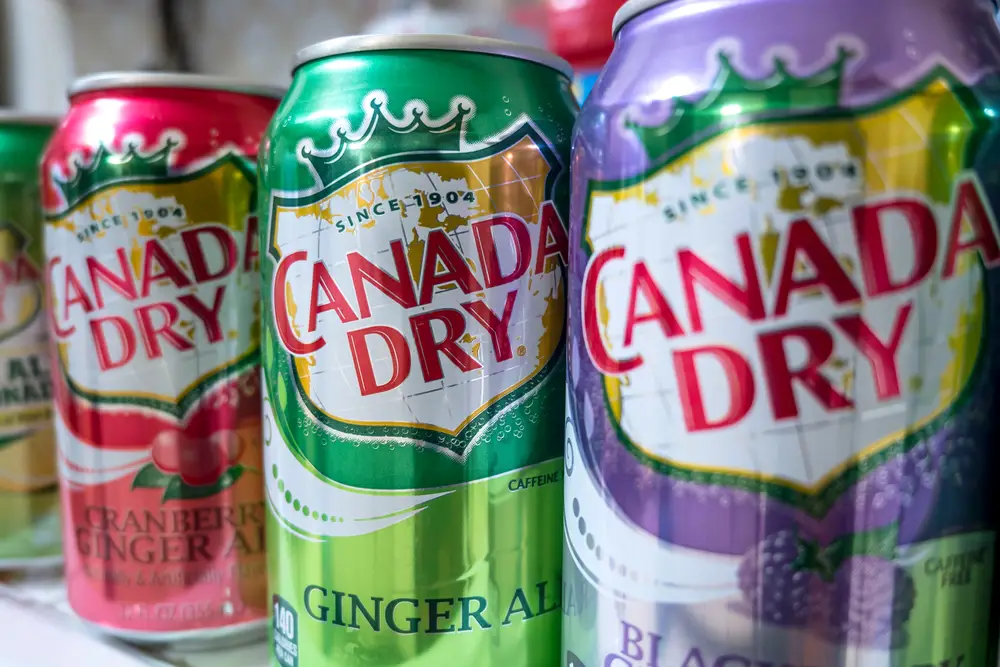Ginger ale is a refreshing beverage. It has long been favored for use in mixed drinks or to be sipped by those suffering nausea due to its alleged ability to settle an upset tummy. Most fans of ginger ale love it because they view it as a natural drink. Unfortunately, that may not be the case.
Canada Dry and Schweppes, two leading ginger ale brands owned by Keurig Dr Pepper Inc., are facing a class-action lawsuit alleging false advertising. The lawsuit claims that these beverages are mislabeled as "naturally flavored" despite containing synthetic ingredients.

The Allegations
Filed on October 2024 in a California federal court, the lawsuit against the ginger ale brands focuses on the use of synthetic dl-malic acid in Canada Dry and Schweppes ginger ales. The compound is often used to enhance tartness. However, it is actually synthetic and not natural in origin. Then there is the ongoing debate about the formulas even containing genuine, natural ginger that shadows the newest allegations.
Due to the addition of the synthetic compound in the ginger ale, plaintiffs in the current class action lawsuit argue that labeling the drinks as "naturally flavored" is misleading and violates both federal and state laws requiring accurate disclosure of artificial flavors.
In addition, if consumers had known the truth - that the Canada Dry and Schweppes ginger ale brands contained synthetic ingredients - they would not have purchased the products. Instead, they would have picked a different option. Basically, they were deceived by the mislabeling.
Previous Legal Challenges Faced by Canada Dry
This isn't the first time that Keurig Dr Pepper Inc. has faced scrutiny and legal trouble over its labeling practices. In 2019, the company settled an $11.2 million lawsuit over claims that its ginger ale contained "real ginger."
The settlement required Canada Dry to change its labeling to better clarify the true nature of its beverages’ ingredients. However, despite the legal victory, it seems that the Keurig Dr Pepper Inc. is again not providing transparency to consumers and instead is practicing misleading labeling
Consumer Reactions
The recent Canada Dry lawsuit has sparked significant consumer interest and even a touch of controversy. Many lovers of ginger ale express genuine frustration over being misled by the company’s "natural" claims. This is especially true for those who picked the beverages for the ginger’s perceived health benefits such as expectant mothers looking to alleviate their pregnancy nausea/morning sickness or those undergoing treatments, such as chemotherapy, who are seeking natural ways to cope with nausea.
Social media platforms are abuzz with discussions concerning the ginger ale controversy. Some consumers have humorously noted that they considered ginger ale a remedy for ailments, only to find out it lacks real ginger and contains synthetic ingredients.
Justifiably, consumers feel that they have been knowingly deceived - again. First, they were told that the beverages contained real ginger and then they were told that the ingredients were all natural, (only to find out that the ginger ale brands contain synthetic ingredients). Undoubtedly the old saying, "Fool me once, shame on you; fool me twice, shame on me" has come into play here which has made consumers furious at Keurig Dr Pepper Inc.
Implications for the Beverage Industry
This case highlights the growing consumer demand for transparency in product labeling. Without a doubt, companies may need to reevaluate their marketing strategies to ensure compliance with labeling laws and maintain consumer trust. Misleading claims can lead to legal repercussions and significantly damage the brand's reputation.
What’s Next?
As the lawsuit progresses, consumers who purchased Canada Dry or Schweppes ginger ale may be eligible for compensation if a settlement is reached. It's advisable to keep receipts and stay informed about the case's developments.
Wondering what you can do if you feel that you have been misled over ginger ale? Consumers can file complaints with consumer protection agencies. They can also consider participating in class-action lawsuits if they believe they've been misled by product labeling.
Consumers are becoming more diligent about the truthfulness and authenticity of product claims. Many are seeking healthy food and drink options so they take the time to research and read the labels on the products that they use.
Nowadays, companies must focus on ensuring their marketing is transparent and aligns with regulatory standards coupled with consumer expectations.
In conclusion, the lawsuit against Canada Dry and Schweppes underscores the importance of accurate product labeling and transparency.




Add Comment